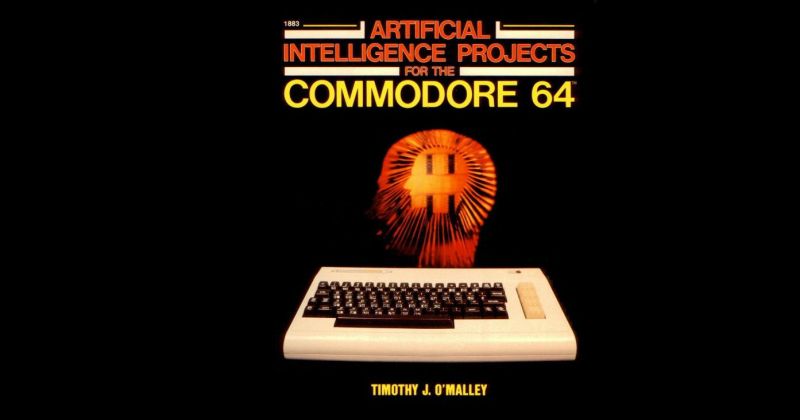All You Need For Artificial Intelligence Is A Commodore 64
Artificial intelligence has always been a part of our lives, often in places we least expect it. The resurgence of retro technology has brought new attention to early discussions on AI, not least of which are those centered around the iconic Commodore 64. In a digital landscape dominated by advanced models like LLMs and neural networks, it’s fascinating to look back on Timothy J. O’Malley’s insightful exploration from 1985, where he outlined AI projects that remarkably utilized this vintage machine. AI projects for the Commodore 64 reveal how far we have come and yet how foundational these early concepts still are.
Revisiting the Concept of Intelligence
O’Malley’s book delves into the essence of intelligence itself—highlighting that at its core, intelligence is about information storage and the ability to make sense of connections within that data. His approach ties in neatly with the idea of basic AI functioning akin to the strategies used by opponents in classic games like chess or Nim. In my own experience tinkering with old software on the Commodore, I’ve witnessed how simple algorithms can foster a semblance of strategic thinking, leading to a deeper appreciation of what it means to be ‘intelligent.’ It’s like a mini revelation that echoes the complexity we now achieve with highly sophisticated AI models today.
 The early days of AI on a Commodore 64.
The early days of AI on a Commodore 64.
Natural Language Processing and Beyond
One particularly striking aspect of O’Malley’s text is the exploration of natural language processing, where the legacy of simpler systems like ELIZA continues to remind us that the roots of conversational AI are far-reaching. This is a thought-provoking area; revisiting ELIZA underscores the modest beginnings of what we now regard as state-of-the-art conversational assistants. Who would have thought that its primitive responses could pave the way for the sophisticated dialogues we engage with today?
O’Malley further elaborates on heuristics and pattern recognition as foundational stepping stones for numerous fields, including robotics. While some might consider this knowledge obsolete in the era of LLMs, it’s imperative to recognize that many algorithms and principles governing AI performance today have their lineage traced back to those pioneering days of research. Indeed, as O’Malley poignantly concludes, the limitations we impose on AI innovation are often only as restrictive as our available hardware and storage.
The Commodore’s Lasting Legacy
Interestingly, a recent experiment demonstrated that a Commodore 64 could outperform modern technology—specifically IBM’s quantum processor—by successfully running an Ising model. This revelation somewhat disrupts the often unquestioned notion that only the newest technology can achieve the most impressive feats. It begs the question: are we so in awe of shiny advancements that we overlook the ingenuity brewing within our retro machines? The researchers’ findings suggest that sometimes, simpler systems can yield unexpected triumphs against their more contemporary counterparts. This did resonate with me personally as I often find joy in revisiting older tech, each time bearing witness to the brilliance hidden behind their seemingly simple interfaces.
 Revisiting old tech can yield surprising insights.
Revisiting old tech can yield surprising insights.
Reflecting on the Future of AI
As we continue to navigate through the complexities of AI development, it’s vital to acknowledge the skill and the intuition that early researchers, like O’Malley, provided the groundwork upon which we now stand. While we delight in the rapid advancements of AI, we must also foster a sense of respect towards the foundational systems that have cultivated the innovations we celebrate today. There’s an undeniable charm in the compatibility of nostalgia with future tech, as both sides contribute to a broader narrative about intelligence—artificial or otherwise.
So, next time you marvel at a cutting-edge AI model, spare a thought for the Commodore 64 and its legacy. What does it mean for us to reset our understanding of artificial intelligence? I believe it encourages a more inclusive mindset in technology—embracing simplicity alongside complexity. After all, innovation isn’t always about being the newest; sometimes, it’s about reexamining what we already have and discovering the genius disguised amid the classics.


 Photo by
Photo by 











